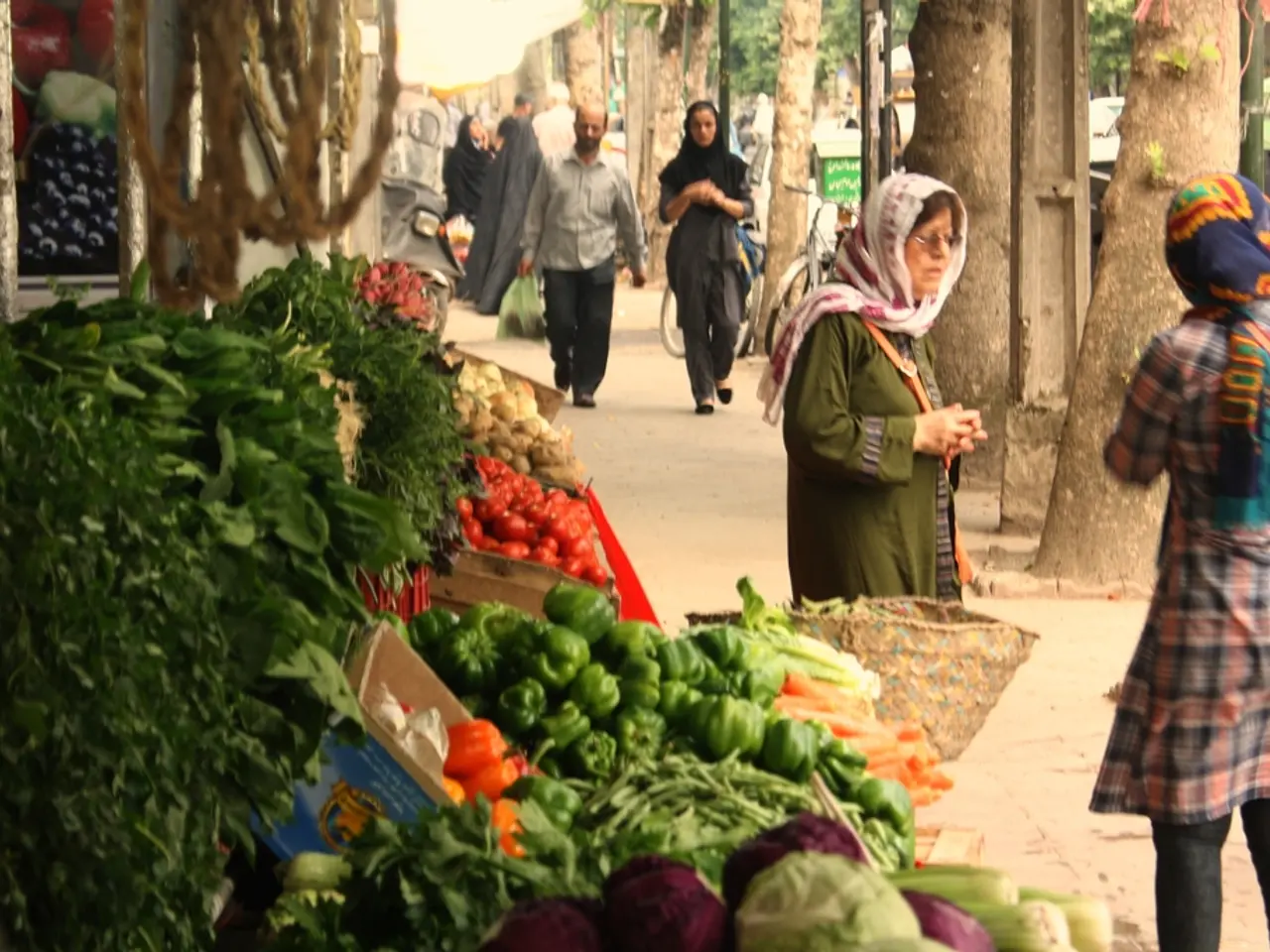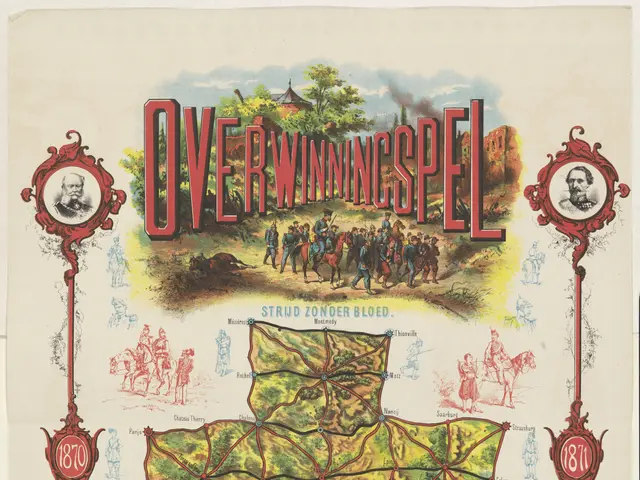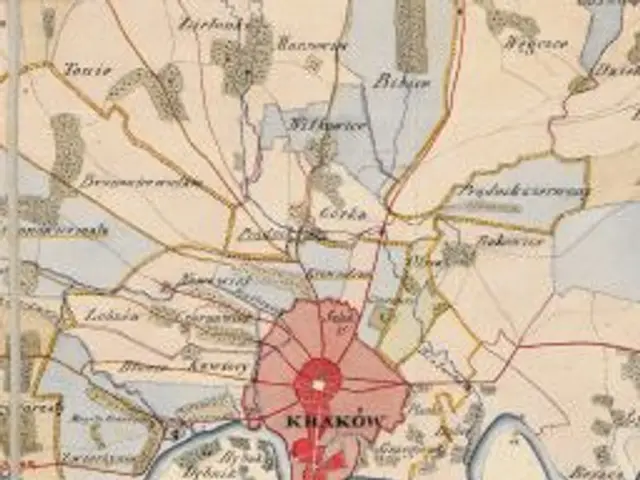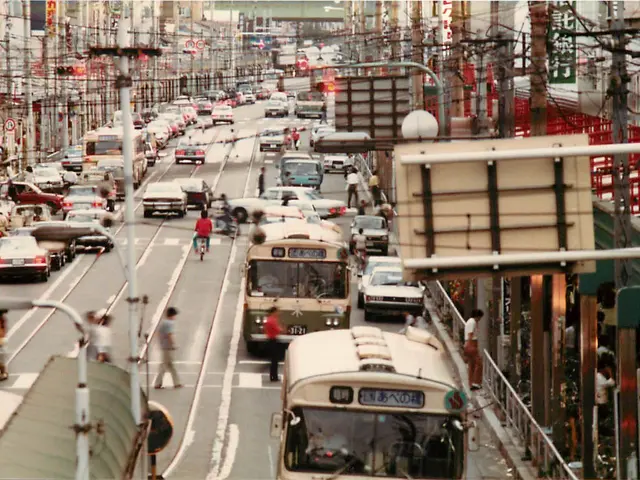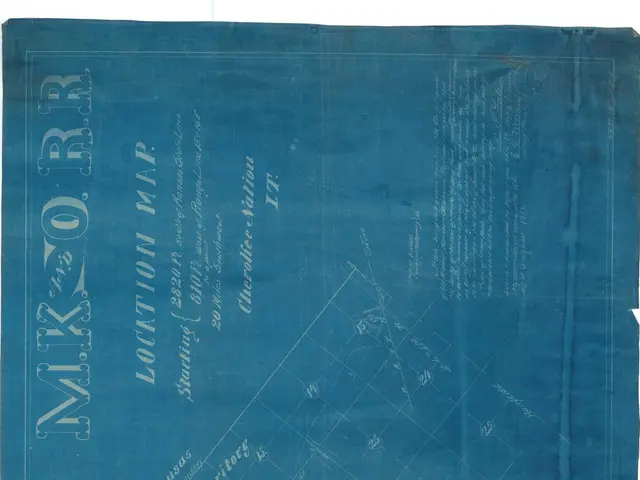Venerable bazaar boasts an esteemed history, having been established as early as 1561!
In the heart of Liège, Belgium, a vibrant market has been a constant fixture for over four centuries. Established in 1561, La Batte market is the oldest market in Europe, boasting an uninterrupted operation every Sunday for over 460 years [1].
Nestled on the Quai de La Batte, the city's quayside, this historic marketplace lies at the heart of Liège's urban life. Its location, coupled with its rich history, makes it a significant cultural and social hub along the Meuse River. Liège, a city renowned for its industrial heritage and early coal mining, has found in La Batte a longstanding social and commercial hub that has contributed significantly to its life and economy [2].
La Batte market is renowned for attracting a cosmopolitan clientele, with locals and tourists flocking to browse a diverse range of goods. From fresh produce, meats, regional crafts, street food, and various flea market items, the market supports local producers and artisans while offering visitors an authentic experience of Walloon culture [3][4].
Moreover, the market serves as a weekly gathering place, where people come to experience the lively atmosphere of Liège, sample its culinary specialties like salade Liègeoise and boulets (meatballs), and discover its historical and contemporary charm [4]. The market’s consistency over centuries underscores its role as both a tradition and a living institution embedded in the city’s identity.
Every Sunday, around 400 regular sellers and 50 casual sellers participate in the market, turning it into a unique hive of activity. The market operates from 8 am to 2:30 pm, and the casual sellers take part in a ritual morning random draw to secure their spots [5].
La Batte market attracts around 4 to 5 million visitors every year, with up to 100,000 people on fine Sundays. In 1969, when authorities considered moving the market, the local community mobilized to stop the relocation, demonstrating the market's deep roots in the culture and identity of Liège [6].
Today, La Batte market is considered a symbol of European conviviality, offering a diverse range of goods, including second-hand goods, used books, and vintage clothing. Its rich history, unique atmosphere, and cultural significance make it a must-visit destination for anyone exploring Belgium [7].
References:
[1] "La Batte Market, the oldest market in Europe." Wallonia-Brussels Federation. Accessed 2022-04-20. https://www.wallonia-tourism.be/en/discover/history/la-batte-market-oldest-market-europe
[2] "La Batte Market: A Living Institution in Liège." Wallonia-Brussels Federation. Accessed 2022-04-20. https://www.wallonia-tourism.be/en/discover/history/la-batte-market-living-institution-liege
[3] "Discover the Diverse Goods of La Batte Market." Wallonia-Brussels Federation. Accessed 2022-04-20. https://www.wallonia-tourism.be/en/discover/history/discover-diverse-goods-la-batte-market
[4] "La Batte Market: A Cultural and Social Event." Wallonia-Brussels Federation. Accessed 2022-04-20. https://www.wallonia-tourism.be/en/discover/history/la-batte-market-cultural-and-social-event
[5] "The Ritual Morning Random Draw at La Batte Market." Wallonia-Brussels Federation. Accessed 2022-04-20. https://www.wallonia-tourism.be/en/discover/history/ritual-morning-random-draw-la-batte-market
[6] "The Community's Fight to Save La Batte Market." Wallonia-Brussels Federation. Accessed 2022-04-20. https://www.wallonia-tourism.be/en/discover/history/communitys-fight-save-la-batte-market
[7] "La Batte Market: A Symbol of European Conviviality." Wallonia-Brussels Federation. Accessed 2022-04-20. https://www.wallonia-tourism.be/en/discover/history/la-batte-market-symbol-european-conviviality
Exploring the vibrant La Batte market in Liège, Belgium, visitors can immerse themselves in a rich tapestry of European lifestyle, food-and-drink, travel, and culture. The market, a symbol of European conviviality, offers an authentic experience of Walloon lifestyle, showcasing diverse local produce, regional crafts, street food, and second-hand goods. Weekly gatherings are centered around sampling traditional dishes like salade Liégeoise and boulets (meatballs), making it an essential destination for anyone exploring Belgium.
